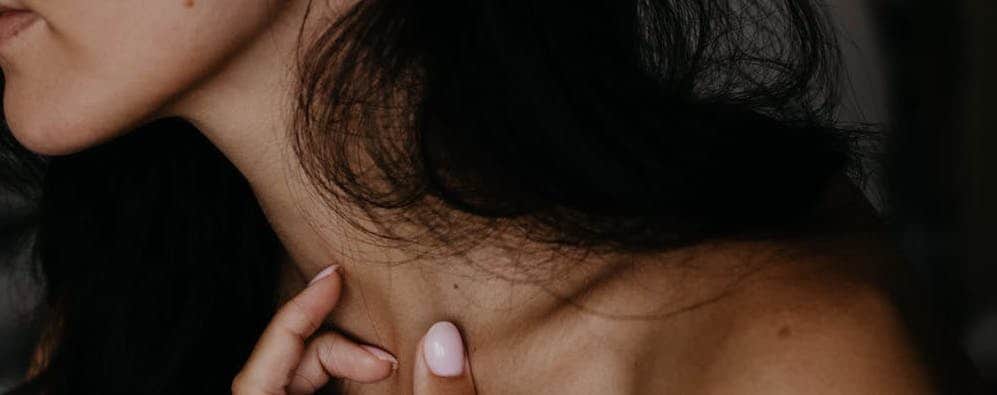6 Ways to Cope with Anxiety
With the rain turning to snow here in Kingston this week and the number accidents on the rise, anxiety has come up more than a few times in the office this week already. Add to this the random acts of violence, the economic situation, environmental challenges, food prep, diet culture, hustle mentality, social media inundation and poof – who isn’t more anxious than they’d like to be?
To be clear, there are many types of anxiety – circumstantial/situational anxieties, stage fright, social anxiety, obsessive compulsive disorder (OCD), Post-traumatic stress disorder (PTSD), phobias and generalized anxiety disorder (GAD) + or – anxiety attacks. Beyond just getting a correct diagnosis we should also accept that anxiety shows up in our lives in a number of ways, for example:
- low mood
- Fatigue
- Addiction
- Relationship issues (often based on fear)
- Food choices
And, anxiety isn’t an “it’s all in your head” kinda thing either by the way… because I do feel that needs clarification even in 2019, unfortunately. It causes very real physical symptoms that vary from nausea to structural changes in the heart (Takotsubo Syndrome).
Here are a few techniques I suggest my patient’s employ to combat anxiety:
 Call it like it is!
Call it like it is!
Anxiety is a feeling. It has no real control OVER you although it does impact, in a very real way, how you feel. The slight difference here in perception is EVERYTHING. You are in the driver’s seat. Recognize anxiety when it comes up for you as a set of feelings that arise as a response to a perceived threat that sets off a a series of un-enjoyable biological triggers.
 Get your care team to rally around you.
Get your care team to rally around you.
That’s right, I said team. Anxiety can be a mind/body/spirit/genetic kind of dis-ease. So, it goes without saying you need a mind-master, a body builder, a spirit specialist, genetic guru to support you in moving through your anxiety and learning to navigate it all.
Are you seeing your anxiety as a DIY job? Ask yourself if that’s truly what’s best for you or if you are just coming up against resistance to asking for help. Often seeing a professional to learn techniques you can then practice at home make for the most effective treatment protocol. Think: biofeedback, cognitive behavioural therapy, journaling, etc…
 23-AND-Me or is it just you?
23-AND-Me or is it just you?
Genetics – yup, the idea that you inherited your anxious demeanour isn’t all wrong. There are gene variants that cause certain patients to become anxious more easily or with lower stimulus than others while others still will suffer from anxiety longer as their body struggles to clear anxious neurotransmitters after anxiety throws up red flags in the brain. Patients with a COMT polymorphisms often don’t handle caffeine well and sometimes even report heart palpitations and/or don’t enjoy horror movies because they have physical symptoms that are frankly, overwhelming! Can we shift your genome? Not really BUT we can acknowledge in a real way that you are predisposed to having a larger anxiety response and make decisions accordingly!
 Exercise!
Exercise!
Moving your body helps it process neurotransmitters like cortisol, epinephrine and norepinephrine more quickly which will get you feeling better, fast! How much do you have to move and how often? The research is mixed on this but we do know that more isn’t always better so I suggest aiming for 3-4x/week in 30 minute intervals and keeping a moderate pace.
 Go Steady with (your) Sugars.
Go Steady with (your) Sugars.
Wait, what? Eat more sugar? Yea…no…you read what wrong. Sorry!
In order for your physiologist to receive messages that it’s safe, that it doesn’t need to protect you from imminent surprise attacks or fight off a bear you MUST maintain a steady blood sugar value. To do this you must remember to eat regularly and pick a good number of foods that are high in fats (think healthy oils, nuts, and seeds, avocados, etc) and avoid white sugar, additives, food colouring, carbohydrate-heavy meals, and caffeine.
 Don’t Ignore Your Gut
Don’t Ignore Your Gut
The gut-brain connection is real! If you have anxiety, one part of your case that should never be overlooked is a full assessment of what’s going on with your gut microbiome. The bacteria in your gut, for better or for worse, will impact your anxiety levels. Let’s work together to ensure your bowels are moving at least once daily, are well formed, feeling completely evacuated, passing without the need to strain, sinking in the toilet bowl (not floating) and doing so without mucus, blood or undigested food. Those are the bum-bum-basics as one of my paediatric patients once said but we can also work to optimize the gut flora which will be supportive to that gut-brain axis!
Finally, if you feel like you’ve done it all and you’re still stuck – call me!
Naturopathic Doctors are a great option for treating many types of anxiety. Whether your goal is to skip out on the Pharmaceuticals all together, to reduce symptoms of your pharmaceutical or work to lower your lowest effective dose – ND’s can help! There are many options for supplements and herbs that are anxiety-supportive and we are trained to help you navigate the world of alternative medicine in a safe and effective manner.

